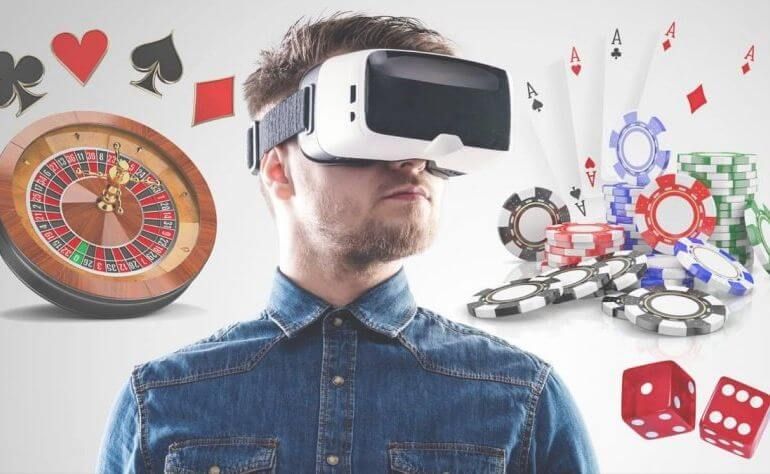Every part of modern life has been altered through the march of technology like artificial intelligence (AI) and virtual reality (VR), and gambling — one of the classic pastimes, dating back almost as far as humanity itself — is no exception.
Now that ownership of sophisticated internet-capable electronic devices is commonplace, a lot of gambling has moved online (a move that’s been furthered by the COVID-19 lockdowns).
Consider, for instance, that myriad sites make it incredibly easy to bet on live sporting events: no need to visit a bookie to place a bet, and no need to go anywhere to collect any winnings.
Additionally, many casinos have coupled their physical premises with online casino sites. If you can’t get to a regular casino (or would prefer to play remotely), you can enjoy the same games.
According to SEMrush, since the beginning of the year 2020 the online gambling industry has been experiencing the rise of traffic globally by around 27% – from January to March. Virtual casinos are now booming.
Source: semrush.com
But that’s the general influence of the internet — what about forms of technology that are still attempting to reach the mainstream?
In this post, we’re going to look specifically at how AI and VR tech have affected the casino industry so far. Let’s get started.
Machine learning has allowed the detection of trends
While it isn’t the kind of AI most people imagine (involving sentient computers, of course), machine learning is the form of AI that we can actually use today. It involves creating systems that can imitate human learning, running iteratively and changing things each time to keep improving the results in various areas including project management and AI. So how has machine learning helped certain casino sites prosper?
- It’s helped optimize user experience. The more casinos can cater to their customers, the more money they can make, and machine learning allows them to look into customer activity to figure out what keeps them happy and encourages them to return.
- It’s uncovered cases of addiction. Good casinos acknowledge the ever-looming threat of addiction and take steps to combat it, and machine learning can flag up cases of players crossing certain thresholds that indicate possible addiction. This is why many of the best casino sites have invested in it: Mr Green, for instance, rolled out “behavior triggered interventions” in 2019 with the intention of helping players gamble more safely.
- It’s clearly exposed user fraud. Cheaters are always problems at casinos. And while moving casino games online makes it impossible for players to cheat in traditional ways, they can find other ways to digitally hack the odds in their favor. Machine learning is what allows casinos to notice the patterns that indicate fraud so they can shut it down.
Chatbots have allowed customer service at scale
Moving casino games online means a lot more dealing with customer service issues, whether due to technical issues with casino systems (games not loading, interfaces glitching, etc.) or due to general customer problems such as being unable to withdraw money or having issues with identity authentication (which is an important requirement for online casinos).
The use of chatbots programmed with answers to common queries allows indefinitely-scalable online support, making it simple for casinos to handle basic problems and free up human support assistants to help with complex issues or look after high rollers.
That last part is particularly important since so many of the elements that go into keeping people in physical casinos (the lighting, the free drinks, the general sense of luxury) can’t be provided online. Customer service is one thing that can be replicated, so being able to rapidly attend to someone’s needs can work wonders in convincing them to stick around.
VR has mimicked the in-person casino experience
Now, while AI has made a big splash in the ways listed above, VR is still relatively niche — but that doesn’t mean it hasn’t had any impact, because it has. As noted, going from physical casinos to online casinos means losing some of the grandiosity, so what if you could replicate it to some extent? With VR headsets and environments, you can.
In the VR world, you can play poker with a view that’s similar to what you’d get if you were in a real casino. Is it extremely common? No, because VR headsets themselves aren’t common: they’re expensive and still fairly early in development, so most people don’t have them. But they’re common enough that there’s value in catering to their users.
In the future, though, a VR-based casino could be very lucrative through allowing people to interact with one another in more impressive ways. For now, we just need to let the technology mature and see how it eventually finds its way into the mainstream.
